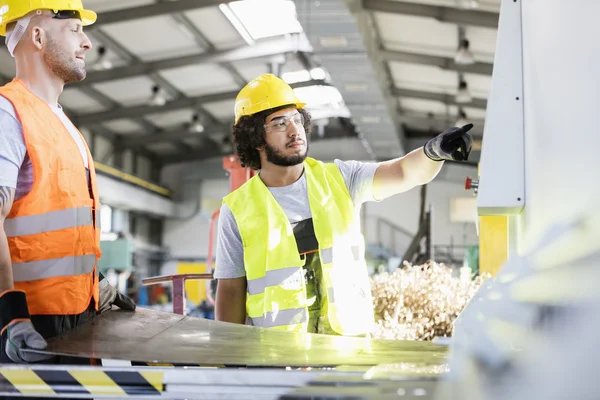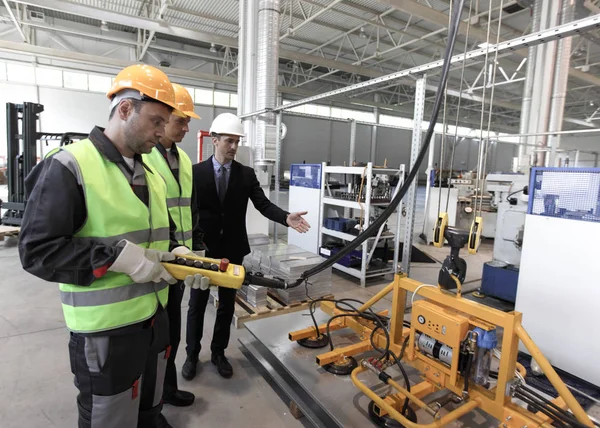Revolutionizing Workshops: Unleashing The Power Of Cutting-Edge Sheet Metal Machinery
In the heart of modern industry, a quiet but powerful revolution is underway—one fueled by the relentless advancement of cutting-edge sheet metal machinery. As workshops embrace technological marvels, the traditional realm of metal fabrication is undergoing a seismic shift. The integration of state-of-the-art equipment is not merely a choice; it is a transformative journey that has the potential to redefine the very essence of craftsmanship.
In this article, we embark on an exploration of how these sophisticated tools are reshaping workshops, elevating precision, efficiency, and creativity to unprecedented heights in the world of sheet metal fabrication. Welcome to a new era where innovation meets ingenuity, and the workshop floor becomes a stage for the symphony of progress in metalworking.
The Evolution of Sheet Metal Machinery
From Manual to Automated: A Paradigm Shift
Historically, sheet metal fabrication heavily relied on manual labor, demanding skilled craftsmen to meticulously shape and cut metal components. However, the advent of automation has marked a significant paradigm shift. Modern sheet metal machinery integrates advanced computer numerical control (CNC) systems, enabling precise and automated control over the cutting and forming processes. This shift not only enhances efficiency but also reduces the margin of error, resulting in higher quality output.
Laser Cutting: Precision Redefined
One of the key innovations in sheet metal machinery is the widespread adoption of laser cutting technology. Laser cutting offers unparalleled precision, allowing workshops to create intricate designs with minimal waste. The ability to cut through various materials with speed and accuracy has revolutionized the way metal components are produced. This section explores the impact of laser cutting on the efficiency and versatility of workshops.

The Impact on Efficiency and Precision
Streamlined Production Processes
The integration of cutting-edge sheet metal machinery streamlines production processes, reducing lead times and enhancing overall efficiency. Automated systems ensure consistent output, eliminating variations that can arise from manual labor. This not only accelerates project timelines but also contributes to cost savings, making workshops more competitive in the market.
Precision Engineering: Meeting Stringent Standards
Precision is paramount in metal fabrication, especially in industries where components must adhere to stringent standards. Cutting-edge sheet metal machinery, equipped with advanced measurement and control systems, ensures that each piece meets exact specifications. This level of precision is particularly crucial in sectors such as aerospace and medical equipment manufacturing, where the slightest deviation can have profound consequences.
Advancements in Material Handling
- Autonomous Systems: Material handling has evolved with the introduction of autonomous vehicles and robotic solutions, reducing manual labor and enhancing efficiency.
- RFID Technology: The widespread use of Radio-Frequency Identification (RFID) technology allows for real-time tracking and management of inventory, minimizing errors and improving overall accuracy.
- Machine Learning: Implementation of machine learning algorithms enables predictive maintenance, optimizing the lifespan and performance of material handling equipment.
- Integration of Drones: Drones are increasingly employed for inventory management and large-scale material movement, providing a swift and cost-effective alternative in certain scenarios.
- Augmented Reality (AR): AR applications are transforming training processes and order picking by providing visual guidance, reducing errors, and increasing the speed of material handling tasks.
- Data Analytics: Utilizing big data analytics enhances decision-making processes, offering insights into material flow patterns, demand forecasting, and overall operational efficiency improvements.
The Role of Software Integration

Digital Design and Simulation
The synergy between hardware and software is a hallmark of modern sheet metal machinery. Advanced software applications enable digital design and simulation, allowing workshops to visualize and optimize the fabrication process before physical production begins. This not only minimizes errors but also facilitates rapid prototyping, accelerating the product development cycle. In this section, we explore how software integration contributes to the efficiency and creativity of workshops.
Real-Time Monitoring and Analytics
The integration of IoT (Internet of Things) technology in sheet metal machinery enables real-time monitoring of the manufacturing process. Sensors collect data on machine performance, material usage, and energy consumption. Analyzing this data provides valuable insights that can be used to optimize workflows, predict maintenance needs, and make informed decisions for process improvement. This section discusses the role of real-time monitoring and analytics in enhancing the overall performance of workshops.
Sustainability and Environmental Impact
- Renewable Energy Adoption: Companies are increasingly shifting towards sustainable energy sources, such as solar and wind power, to reduce their carbon footprint and promote eco-friendly operations.
- Circular Economy Practices: Embracing circular economy models involves minimizing waste through recycling, repurposing, and reducing single-use materials, contributing to a more sustainable and responsible approach.
- Carbon Offsetting Initiatives: Organizations are investing in carbon offset projects to neutralize their emissions, demonstrating a commitment to environmental responsibility and climate action.
- Supply Chain Transparency: Increased focus on supply chain transparency helps identify and mitigate environmental risks, ensuring responsible sourcing and reducing the ecological impact of products.
- Green Packaging Solutions: Innovations in eco-friendly packaging, such as biodegradable materials and reduced packaging waste, play a vital role in minimizing environmental impact across various industries.
- Environmental Certifications: Adherence to recognized environmental certifications, like ISO 14001, demonstrates a commitment to sustainable practices and compliance with international environmental standards.
The Future of Sheet Metal Machinery
Integration of Artificial Intelligence
As technology continues to advance, the integration of artificial intelligence (AI) is poised to revolutionize sheet metal fabrication further. AI algorithms can optimize cutting paths, predict equipment maintenance needs, and even suggest design modifications for improved efficiency. This section explores the potential applications of AI in sheet metal machinery and its implications for the future of workshops.
Customization and Personalization
The demand for customized and personalized products is on the rise across various industries. Cutting-edge sheet metal machinery, coupled with advanced software, facilitates the production of highly customized components. Whether it's intricate architectural designs or bespoke automotive parts, workshops equipped with modern machinery can cater to the growing trend of individualized products. This section discusses how customization is becoming a key driver for the adoption of advanced sheet metal technologies. Visit this webapge for more details.

